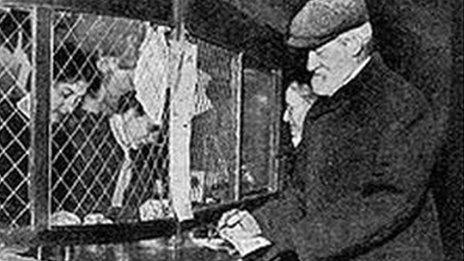Women 'destitution' risk over pensions, Swansea East MP says
- Published
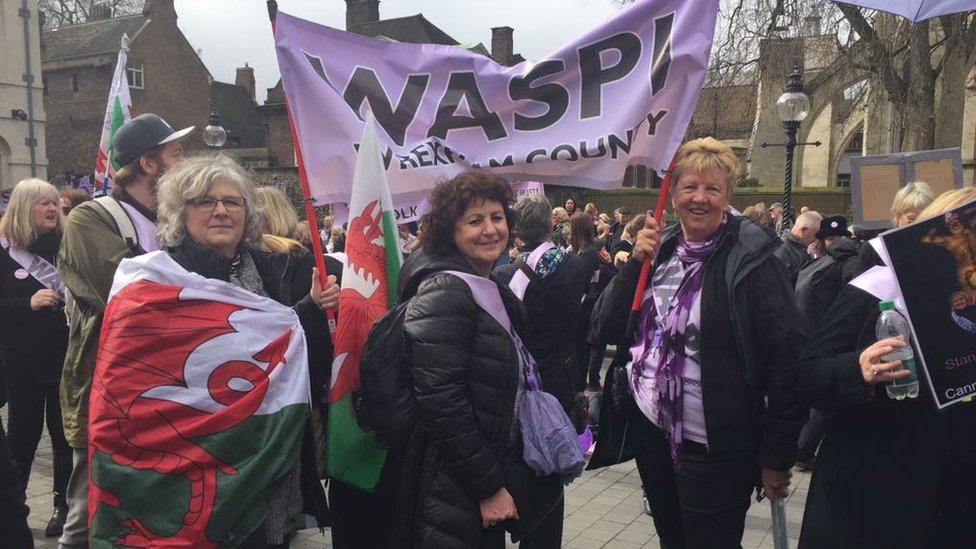
WASPI members protesting in London
Thousands of Welsh women could find themselves "destitute" due to changes to the state pension scheme, an MP has said.
Swansea East MP Carolyn Harris said two and a half million women in the UK are affected by the decision to equalise the state pension age.
Labour estimated about 135,000 of these were in Wales.
A Department of Work and Pensions spokesman said the decision was made more than 20 years ago for equality.
The UK government has been criticised for not making women properly aware of the changes.
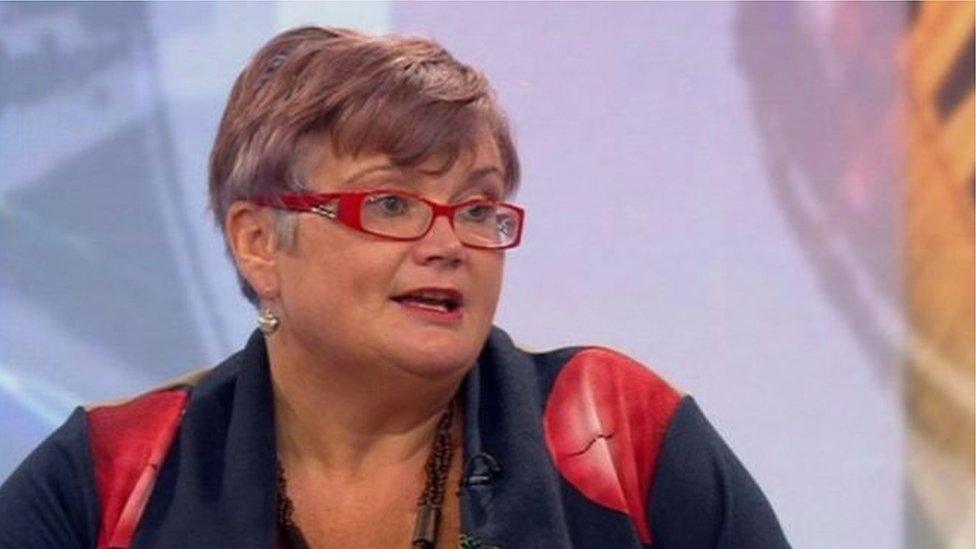
Carolyn Harris said the changes are not fair
Ms Harris, who chairs the State Pension Inequality for Women committee, said women were "going to food banks" and "losing their homes".
"Some women are selling their homes in order to be able to survive, living off savings which are rapidly running out and I don't think it's fair, having in some way shape or form contributed to society all their lives," she said.
The retirement age for women used to be 60 but in 1995 the government announced it was to phase in equality with men who had to wait until 65.
Women have said they were discriminated against during their working lives due to the gender pay gap.

WASPI members on the bus to London
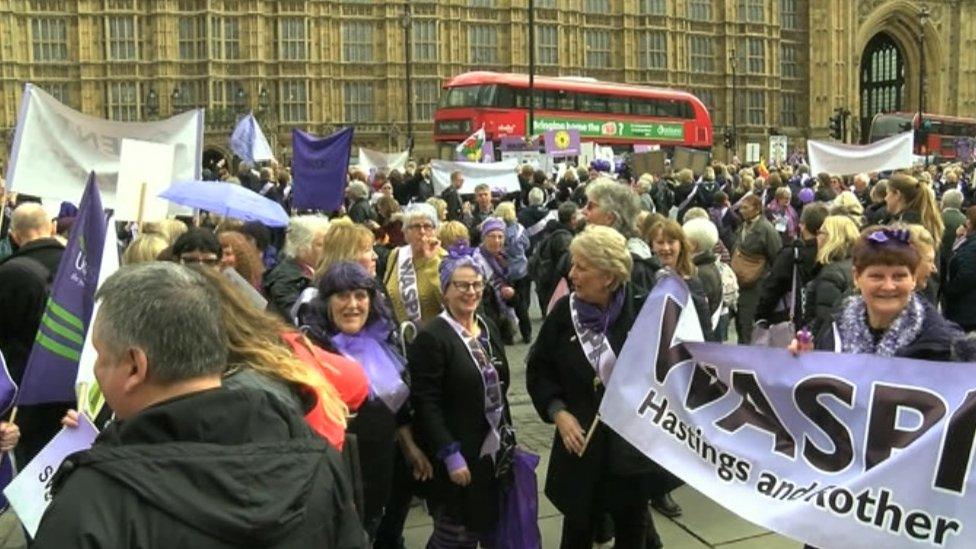
On International Women's Day, hundreds of women from across Wales are travelling to London to take part in a rally to highlight their concerns.
The DWP spokesman said: "The decision to equalise the State Pension age between men and women was made over 20 years ago and achieves a long-overdue move towards gender equality.
WASPI members said they have "been treated with contempt"
"There are no plans to change the transitional arrangements already in place.
"Women retiring today can still expect to receive the state pension for 26 years on average - several years longer than men."
Twin sisters Lesley Stubbs and Sheila Porter, 62, from Llanelli, Carmarthenshire, are members of the group WASPI, campaigning against the changes.
Ms Porter, who worked in the public sector for 45 years, said she stands to lose £42,000 if she does not get her state pension until November 2019.
"I feel absolutely bitterly angry," she said.
"I've paid in religiously, it was a contract as far as I was concerned, the contract was you paid into the National Insurance fund and when you were 60 years of age you would get your state retirement pension and the government changed that without consultation."
Lesley Stubbs said women have already been discriminated against
Ms Stubbs, who also worked in the public sector, said: "I don't disagree with the equality agenda but when you've been faced with inequality for a period of time in your life, then to suddenly feel victimised or discriminated against now on the basis of your age - because that's what is was - if I'd have been born in 1951 - I would have got my state pension by now."
It was also announced the age for both men and women would rise to 66 by October 2020.
Former Conservative pensions minister Baroness Ros Altmann said women should have been given better notice of the changes to state pension.
"I had hoped having a female prime minister we might have got some better understanding of the position faced by women, who let's face it, have lost out in pension throughout their lives.
"This group of women, older women, have built up less state pension entitlement than men of the same age and less private pension entitlement than men of the same age, so they have been and still are the poor relations in pensions, so there is a case in helping them."
- Published8 March 2017
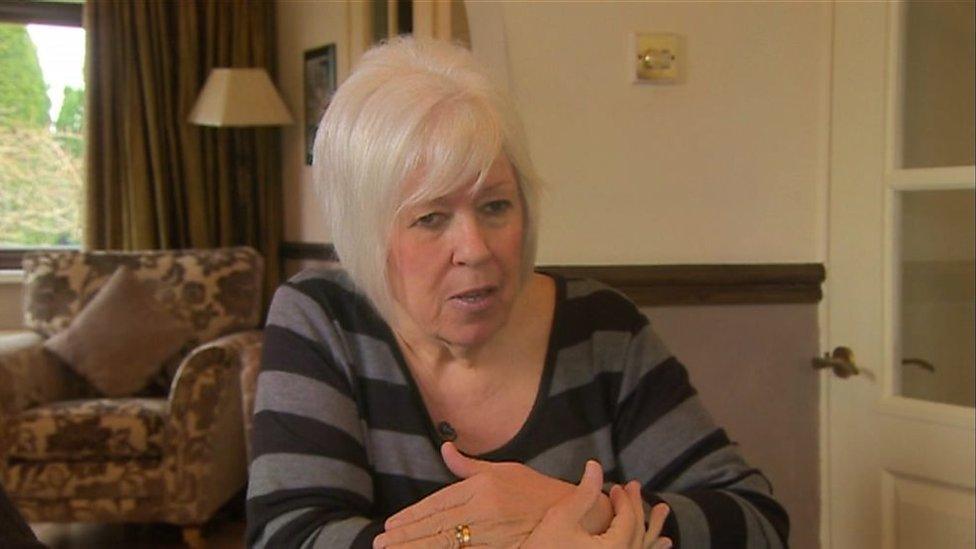
- Published11 October 2016
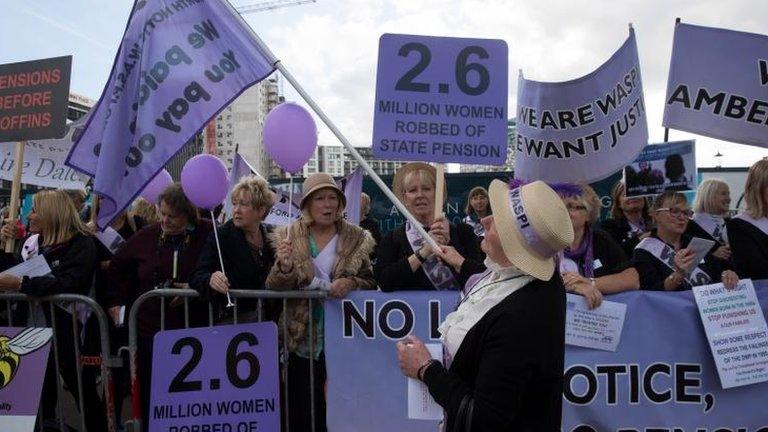
- Published1 March 2016

- Published9 February 2015
